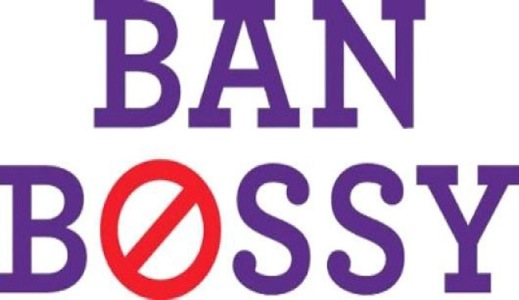By Sophia Madana
I’m not sure if this resonates with you, but at times I feel like this viral internet culture of ours has our fingertips going so fast that we don’t stop to think about what we’re sharing because we’re too concerned with being the first to share it. I say this now because I recently stumbled onto #BanBossy.
By now you’ve surely heard the buzz over Sheryl Sandberg’s latest movement. And you’ve surely seen the video jam-packed with high profile celebs touting the message.
The concept is great, and I couldn’t agree more. We need more women leaders in the world, more of us to stand up for ourselves and not be afraid to be called names. We need girls to have confidence and strength at a young age to carry a new generation, and we need equal opportunities in the classroom.
#BanBossy came from Sandberg’s anecdotes in her book and TED talk, mentioning that she was called “bossy” as a child. Instead of feeling ashamed by the label, she wished that someone had told her that she had good “leadership skills.” The movement focuses on this one sound bite, and the whole idea is so catchy that it’s hard not to jump on board. The celebrity video has gone viral and has been viewed over one million times on YouTube in the first two days of its launch.
After seeing this video retweeted and shared on my social media feeds 20 something times before noon, I felt the need for a Zack Morris-style “Timeout!”
Let’s stop and think about this for a second before we go bananas over #banbossy.
When this first came up, the word “bossy” left a terribly sour taste in my mouth, and I couldn’t pinpoint the reason. Then I thought back to my childhood and how I used the word. I remembered the way I felt when I interacted with girls who I had described as bossy. I felt pressured, used, afraid, like I had no say in the task at hand. I felt that this person who I called bossy was dictating rules to me, not for the good of the order, but because if she didn’t get things her way she would throw a tantrum and cause a scene. All the bossy girl cared about was being the star of the show, no matter whose hands she had to step on to get there.
I thought about the other children I played with in my neighborhood who were all boys. We hardly played at my house because all my toys were too girly for them so we played with Ninja Turtles and G.I. Joe action figures (no complaints here!) at their houses. But that came with the home field advantage stipulation: their house, their rules. I never got to play with Michelangelo–who was by far the best Turtle–because the boys would always get dibs on their favorite toys. I remember calling them bossy … a lot.
Then I thought about the girls who raised their hands in class, the girls who participated in discussions, the girls who got all the stickers on their spelling tests. I don’t think I ever would have called those girls bossy. They were the ones I went to for help with my homework. They were the ones who led the group projects, delegating tasks, throwing out ideas, collaborating and trying to include others and keep them interested.
Then I thought about working with boys in groups. Somehow, I mostly found myself stuck being the only girl. I’ll never forget when I was in second grade we were randomly split into groups of four. I was a “four” and the “fours” that surrounded me were all boys. I looked to my left at the boy picking his nose. I looked to my right at the boy blowing bubbles with his own spit and then slurping them back up into his mouth. I looked to the boy directly in front of me who was singing, taking his own liberties to the song, “Twinkle, Twinkle Little Star,” substituting words in to describe his flatulence, as the others giggled. I sighed to myself and thought, “I’m this group’s only hope.” Our task was to describe several ways in which we can recycle every day. I grabbed the pencil and paper and took over as the leader, and not one of those duds said a word about it. They were probably too grateful for someone’s guidance, or perhaps too plain stupid to even think about calling me “bossy.”
So my point is that the words “bossy” and “leader” don’t describe the same person. They are not interchangeable and therefore we can’t rename bossy girls as leaders because they would probably make poor ones. I would never want to work for someone who dictated orders to me, made me feel small, and came out on top at my expense. I certainly don’t think that we should be embracing these traits in a movement caused by Sheryl Sandberg and other celebrities because it condones behavior in young girls (and boys) that allows them to treat others poorly and with no respect. Yes, I agree there is a confidence gap in boys and girls, and there is definitely room for improvement in giving girls the floor to speak and be heard, but “bossiness” has very little to do with that.
So instead, let’s work to identify bossy behavior in young girls and show them the importance of including others, collaborating, building others up, rather than not stomping them down. Let’s actually make leaders out of kids instead of simply relabeling them and moving them along the conveyor belt. Let’s take bossiness down once and for all.
Sorry. Just had to get that off my chest.
OK, “Time in!” Back to your regularly scheduled, uninterrupted viral internet life!




I’m sorry to be a stereotypical male loudmouth and comment on absolutely every post on this blog, but goddamn you all make so much sense.
Does anyone remember “The Little House On The Prairie”? Laura Ingalls was the girl one would go to for homework questions, Nellie Oleson was bossy. So is Honey Boo-Boo and Donald Trump. Bossy is the opposite of Leadership. From my personal experience, bossy people make the worst bosses ever. And celebrating bossiness in girls is the worst idea ever. As if the world needed more female Donald Trumps. We just need fewer Trumps.
There is probably the same problem with boys, come to think of it. Aren’t the loud and pushy boys typically NOT smart and studious, but rather jocks? Trying to create more obnoxious female jocks is great if you’re a gender equality fundamentalist, but counter-productive if the goal is a better society. Instead, ALL shy-but-clever people – regardless of genitalia – should be celebrated and encouraged. And ALL bossy people should be told to sit down and shut up.
But that’s the problem, isn’t it? The overly-confident bossy persons always regard themselves as natural leaders who DESERVE accolades and promotions. And if they don’t receive that, there’s obviously something externally wrong, and they are being held back by jealousy, government regulations or conspiracies.